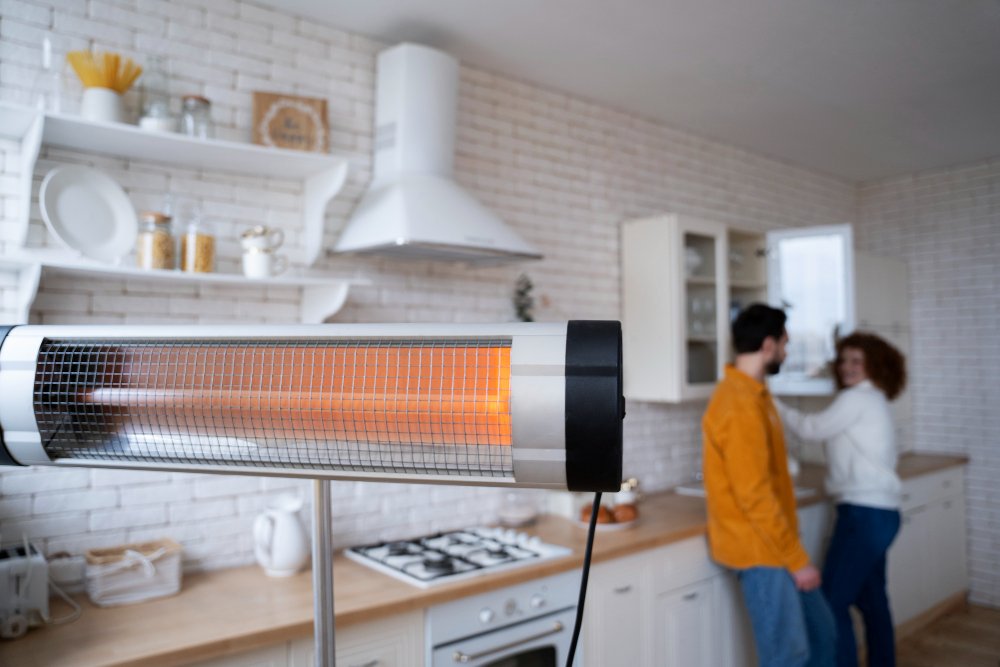Winter is here, and with it comes the challenge of keeping your home warm without skyrocketing energy bills. Heating can account for a significant portion of your energy expenses during the colder months, but an inefficient system or poor heating habits can make things even worse. The good news is, there are simple and effective ways to improve your heating efficiency, keeping your home cozy while saving money.
Here are five practical steps you can take to enhance your heating efficiency this winter.
1. Upgrade to a Programmable or Smart Thermostat
Modern thermostats can make a big difference in how efficiently your heating system runs.
- Why It Works:
A programmable thermostat allows you to set specific temperatures for different times of the day, ensuring your heater isn’t working overtime when no one is home or when you’re asleep. Smart thermostats take it a step further by learning your schedule and adjusting settings automatically. - Pro Tip:
Set your thermostat a few degrees lower at night or when you’re away from home. Even a small reduction can lead to significant energy savings over time.
2. Seal Gaps and Insulate Your Home
Drafts and poor insulation can make your heater work harder to maintain a comfortable temperature.
- Why It Works:
Gaps around windows, doors, and other openings let warm air escape and cold air enter, reducing your home’s overall energy efficiency. Proper insulation and weatherstripping can help retain heat where it’s needed. - Quick Fixes:
- Use caulk or weatherstripping to seal cracks around windows and doors.
- Install draft stoppers at the base of doors.
- Add insulation to your attic or walls to minimize heat loss.
3. Change or Clean Your Air Filters Regularly
A clogged air filter can severely impact your heating system’s performance.
- Why It Works:
Dirty filters restrict airflow, forcing your heater to work harder to circulate warm air throughout your home. This not only reduces efficiency but can also shorten the lifespan of your heating system. - Pro Tip:
Check your filters monthly during the winter and replace or clean them as needed. A clean filter ensures optimal airflow and better energy efficiency.
4. Schedule Routine Heating System Maintenance
Preventative maintenance is key to keeping your system running efficiently.
- Why It Works:
During a maintenance visit, an HVAC technician will clean components, check for potential issues, and ensure your system is operating at peak performance. Addressing small problems early can prevent them from turning into costly repairs and improve overall efficiency. - What to Expect:
A professional will inspect the thermostat, clean burners, check the heat exchanger, and test airflow to make sure your system is ready for the winter season.
5. Maximize Heat Circulation
Simple adjustments in your home can help distribute heat more effectively.
- Why It Works:
Efficient heat distribution ensures your system doesn’t have to overwork to maintain even temperatures throughout the house. - Easy Tips:
- Use ceiling fans on the reverse (clockwise) setting to push warm air back down into the room.
- Keep furniture and curtains away from vents to allow proper airflow.
- Close off unused rooms and vents in those areas to focus heat where it’s needed most.
Bonus Tip: Consider a Heating System Upgrade
If your heating system is more than 10-15 years old, it may be time to consider upgrading to a newer, energy-efficient model. Modern systems, such as heat pumps or high-efficiency furnaces, can significantly reduce energy consumption and lower your heating bills.
Final Thoughts
Improving your heating efficiency doesn’t have to involve a complete overhaul of your system. By making small adjustments, investing in maintenance, and optimizing your home’s energy use, you can enjoy a warm and comfortable winter without the stress of high utility bills.



